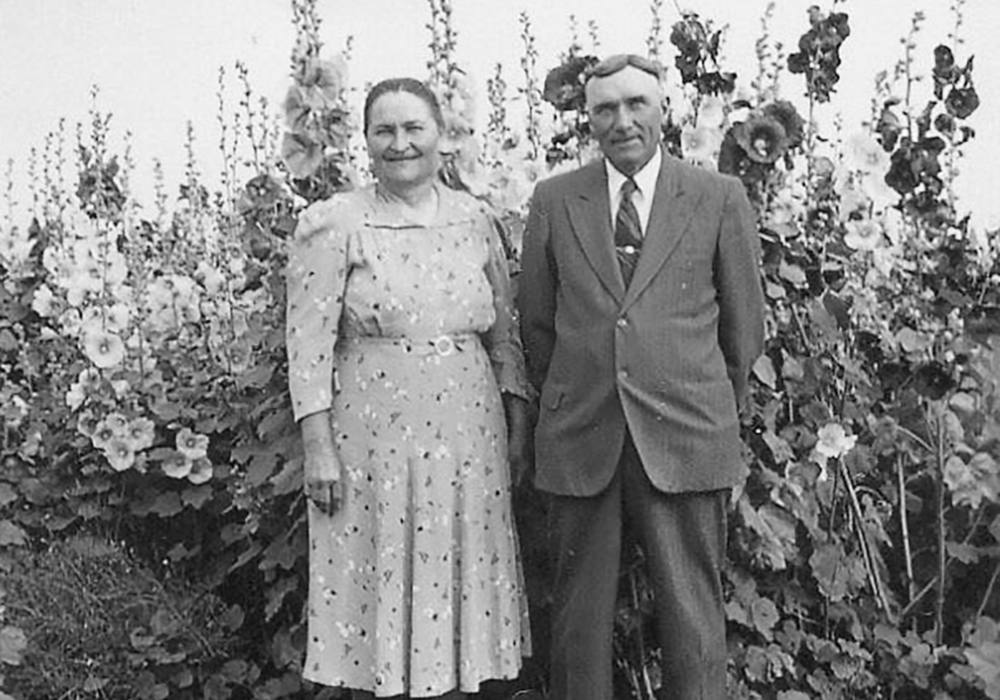I parked the car on the grassy driveway of the Saskatchewan cemetery, a strong prairie wind offering stout resistance as I walked among the weathered, tilting tombstones.
I was seeking the resting place of a pioneer couple who had homesteaded in southern Saskatchewan, but their story actually began in 1906 near Hillsboro, Kansas.
As a young couple in love, they sought privacy in a high-top buggy parked in a shed on the family farm. Their respective fathers happened to come and stand behind the buggy to discuss the pros and cons of a possible marriage between the two, unaware that the young couple could hear every word.
Read Also

Know what costs are involved in keeping crops in the bin
When you’re looking at full bins and rising calf prices, the human reflex is to hold on and hope for more. That’s not a plan. It’s a bet. Storage has a price tag.
The idea discussed seemed agreeable to all concerned, and Dietrich and Elisabeth Barkman were married in August 1906.
Land in Kansas was becoming increasingly scarce and costly, so several newly married couples, Dietrich and Elisabeth among them, decided to move to Canada. Hearing that land was available for $10 a quarter section if farmed for one year, Elisabeth’s father had earlier staked out several possibilities on a visit to southern Saskatchewan, in a community south of Morse.
In Kansas, the livestock cars of a mixed train were loaded with a few horses and cows, as well as farm implements. The young couples knew they were heading into an uncertain future, many never seeing their families in Hillsboro again.
Musical people of the Mennonite persuasion, they sang old familiar hymns in four-part harmony as the steam train clickety-clacked north toward Canada.
The first night on the Saskatchewan prairie the women slept under a hayrack and the men under the open sky. By the next night a crude granary had been erected with lumber bought at Moose Jaw.
In reminiscing decades later, Elisabeth recalled going for walks to gather huge bouquets of wild tiger lilies while the antelopes played around them, totally unafraid.
She said the one big fear in summer was the possibility of prairie fires, which could sweep across the landscape and destroy everything in their path.
Prairie blizzards also posed unique challenges, especially the time a cow climbed a steep snowbank and nearly fell through the roof of their makeshift house with its dirt floor.
Within a year of arriving to homestead, Elizabeth gave birth to a baby. When labour began, Dietrich went to fetch the doctor by horse and buggy. By the time they returned, Elisabeth’s father, who was visiting at the time, had delivered a healthy baby girl. Elisabeth later acted as volunteer midwife for all the other young women in the community.
As tillable acreage expanded, herds multiplied and the family increased to include nine children. Dietrich and Elisabeth became a diligent, resourceful couple, selling grain, cream, eggs and butter to make ends meet.
Records handed down through the family in Dietrich’s handwriting showed he was a conscientious farmer right from the beginning. One page dated November 1906, their first year of homesteading, details the cost of all his farm implements, amounting to a whopping $399.25, including 10 cents for a hoe he bought from his mother. The total cost of moving from Kansas to Canada, including train cars, tickets, buying lumber for house and barn, “a little piggy,” and groceries for that first winter was $284.48. Seven bushels of seed wheat cost $4.55.
Thumbing through later years in these yellowed pages are the gestation dates for the cows, Polly and Dolly and Cora, etc., as well as for the mares, Birdie and Pet.
Dietrich’s sense of accomplishment shines through at the end of each successive year as he crossed off all its costs and earnings with a large X. Debts incurred are clearly marked “paid in full.”
Hours of labour swapped for goods are duly recorded. He kept track of pails of seed wheat loaned to neighbours by drawing a series of strokes (////), a line through them indicating repayment.
A few miles from where I stood in the prairie cemetery, my late husband had grown up on the Barkman family farm, attended the little white church, embraced the Christian faith and developed a strong work ethic and a love for sacred music. A teaching career had brought him to an adjoining province, where we met, fell in love, married and raised four children. The principles with which we reared them lay deeply rooted in this prairie soil and I had come to pay respects.
Out of this community called Flowing Well, numerous descendants have rippled far and wide across Canada. As the story goes, settlers digging all day for water became discouraged, laid down their shovels and went home. Much to their delight, in the morning they discovered they had struck an artesian well that flowed for many decades, hence the name.
In like manner, the values instilled in this prairie community by early pioneers still flow through their descendants, influencing hundreds of people of whom I am but one.
I stood at that little prairie cemetery that day and was grateful that although these folks were gone, the values they instilled decades ago will remain for generations to come.















